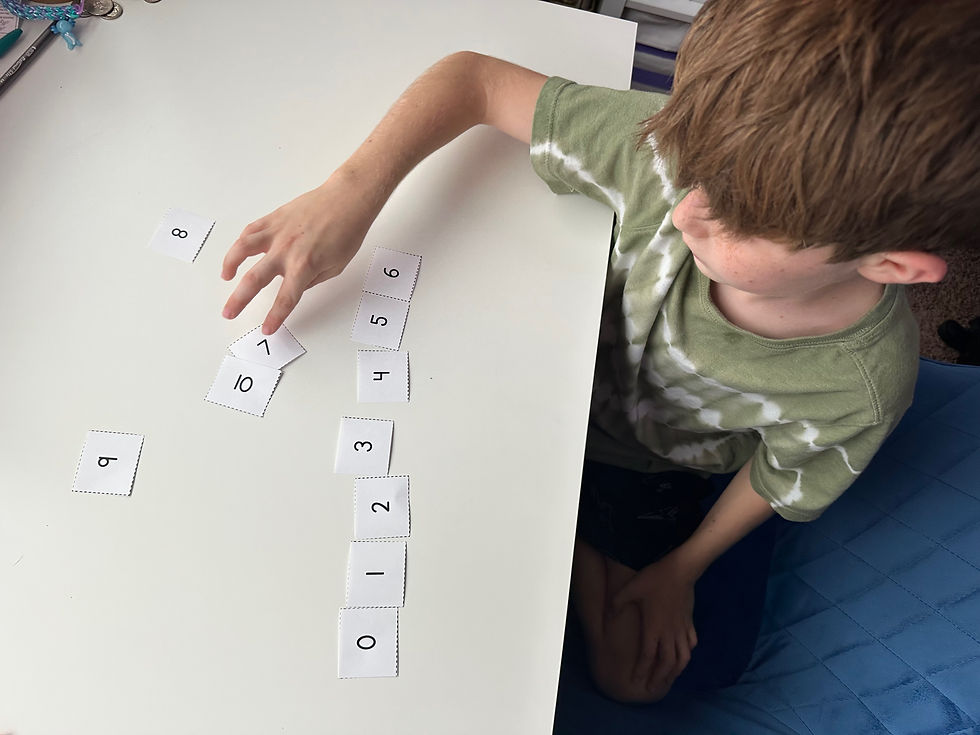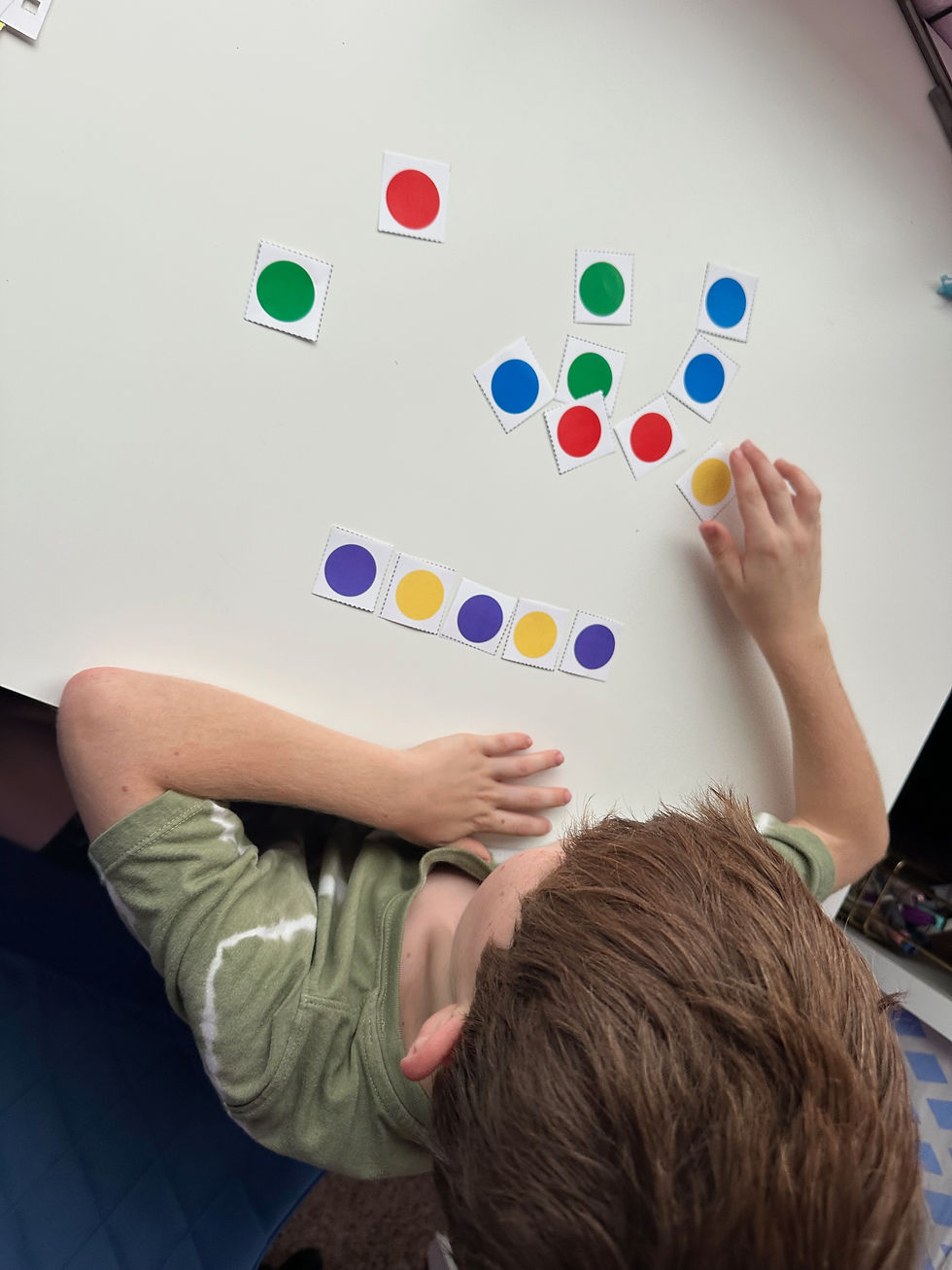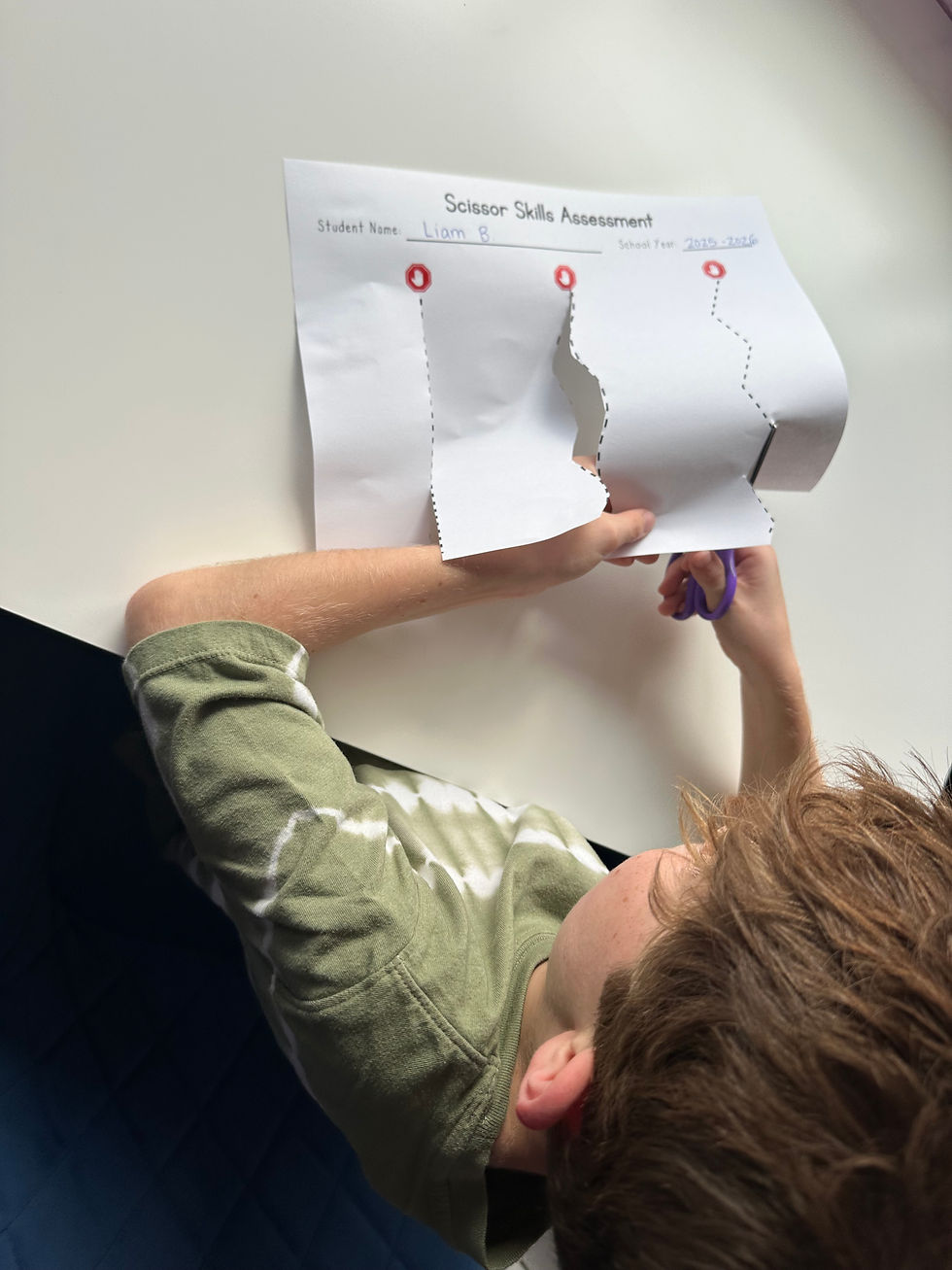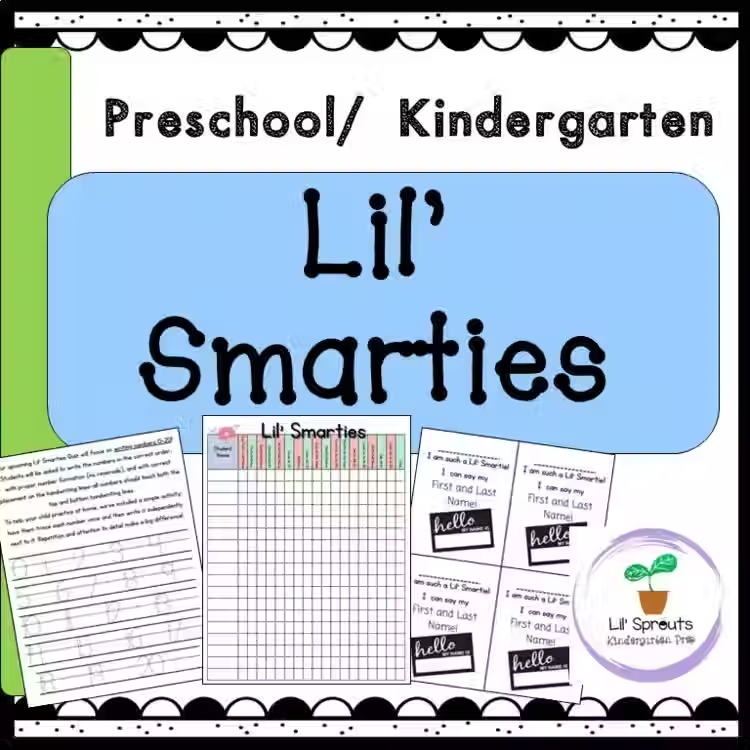Preschool Assessments: Tips for Parents and Teachers
- Mrs. Briana & Mrs. Christine

- Jul 22, 2025
- 5 min read
Updated: Aug 20, 2025
Back to School is here and one of the most important and sometime daunting tasks of back to school time is assessments. Preschool assessments play a crucial role in understanding a child’s early development and learning needs. These evaluations help educators and parents identify a child’s strengths, areas for growth, and readiness for kindergarten, all while ensuring that teaching strategies are driven by student needs. By using thoughtful and well-rounded assessment tools, educators can tailor instruction to each child’s unique pace and potential, laying a strong foundation for lifelong learning. We will share with you some of our tips and goals for assessments throughout the year and share with you easy to use, classroom ready tools to make assessments valuable and stress-free!

Understanding Preschool Assessments
A preschool assessment is a tool to gauge student understanding, development and learning.
2 Types of Assessment that can provide valuable data
Formative - Quick assessments that capture ongoing learning - Check out our Lil' Smarties quizzes! Our next blog will highlight this amazing tool for formative assessment. A perfectly crafted program of bi-weekly quick check quizzes for preschoolers that provide practice and feedback on essential skills.
Summative - Evaluates overall progress and learning typically done three times a year.

When to assess?
Ideally, formative assessments happen periodically throughout the year.
Beginning of the Year - a snapshot of your students' initial skills and helpful in identifying student needs at the very start
Middle of the Year - a check-in to determine growth and mastery of skills that have been introduced in the first semester. This data typically drives parent-teacher conferences and provides a good picture of strengths and areas of need.
End of the Year - a final overview of all the student has learned and mastered throughout the whole school year. This data can help parents see areas to work on before the next grade level. It is also a great picture of the amazing growth that happens in preschool with data-driven teaching!
Purpose Behind Preschool Assessments
The primary purpose of assessing is to identify student strengths and weaknesses. This information can assist both teachers and parents. Teachers can better tailor their teaching and lessons to meet individual needs. Parents can use this information to help guide what to practice at home.
Assessments help with monitoring child development milestones and helps to ensure children are on track for kindergarten readiness. This is our goal at Lil' Sprouts - we want to help your child be as academically and socially prepared for kindergarten as possible.
As teachers, we want to inform our use of curriculum and teaching strategies and enables teachers to adapt and enhance instructional approaches.

Benefits of Assessments Throughout the Year
Regular assessements provide feedback for parents and teachers. Parents feel more involved and informed about their child's progress and it allows teachers to adjust to our students' needs.
In the many years we have taught preschool, we created and used the assessment we are about to share and it has always been a driving force of our daily instruction. It helps us group students for more targeted instructional groups and helps us effectively communicate with parents about thier child's strengths and weaknesses. It gives us a good big picture view of what students know and still need to learn. Our goal is for all our students to master these skills before kindergarten.
Lil' Sprouts Kindergarten Prep has designed a preschool assessment that covers essential kindergarten readiness skills. Our basic assessment covers the following skills:

The second part of the assessment is intended for the second half of the year or for advanced students that are needing a challenge:

Important Notes for Assessing in the Preschool Environment
Our assessment is designed to be completed in a 1 on 1 assessment with teacher and student. This allows for observation in addition to the assessment. Teachers can observe launguage skills through conversation, fine motor skills when observing writing and cutting and social skills - all of which can be valuable information!
Some skills in the second part of the assessment could be done in small groups depending on the teachers preference. For instance, writing numbers or letters, ten frames and tallies or writing CVC words. All of these skills would be later in the school year.
Beginning of the year assessments are typically very different than later in the year. Students maybe nervous, unfamilar with you, and confused by what is being asked.
Be friendly and upbeat. Keep it fun and easy. Take time to explain each part and be okay with moving on or skipping parts the student is not ready for.
The goal of the first assessment is to get an idea of where students are at coming into class. Some will have little to no knowledge and others may know all their letters and numbers. This can help guide your groups and teaching.
There really is no "right" or "correct" level of knowledge for entering preschool. No matter how much or how little a student knows coming into class - growth can and will happen! Preschool is a magical time of amazing student growth!
Remember that your first assessment is the jumping off point. It is great data to share with parents later in the year to demonstrate growth.
Assessments take time. Each student has different needs. Some can sit and complete all the skills in one sitting and others will need it broken into smaller, short time frames.

Click on the image below to see our complete Preschool Assessment Pack - Including recording sheets for teacher and easy to read student pages! Everything you need to effectively complete assessments with your preschoolers.
Helpful tools for preschool assessment
Tips for Teachers
Implement assessments consistently. Use the same tools or manipulatives.
Use hands on materials when possible.
Share assessment results with parents thoughtfully.
Empower parents to use information from assessment to support and help encourage continue growth.
Make adjustments for student needs.
Keep a positive and fun environment - make it a quality time with your student.
Tips for Parents
Ask questions and ensure you understand the types of assessments being used.
Communicate with teachers regularly.
Remember to always empasis "Doing Your Best" and not "Getting it all right."
Regardless of your child's success or weaknesses on an assessment remember it is a tool. It is a single moment in time and a snapshot of their understanding. The purpose is to guide learning and instruction not to dishearten or concern parents.
Use data from assessment to support your child at home.
Offer to support the teacher during assessment times - volunteer your time in the classroom if possible.
In conclusion, preschool assessments play a vital role in understanding a child’s developmental progress and guiding effective learning strategies. When parents and teachers work together in the assessment process, they create a strong foundation for the child’s success, built on shared insights and mutual support. Ongoing communication between home and school ensures that each child’s unique needs are recognized and addressed with care. For those seeking to learn more, numerous resources—such as educational websites, early childhood development books, and local early education centers—can offer deeper insights into assessment practices. Above all, it’s important to view assessments not as tests or judgments, but as valuable tools that help children grow, thrive, and reach their fullest potential.













Comments